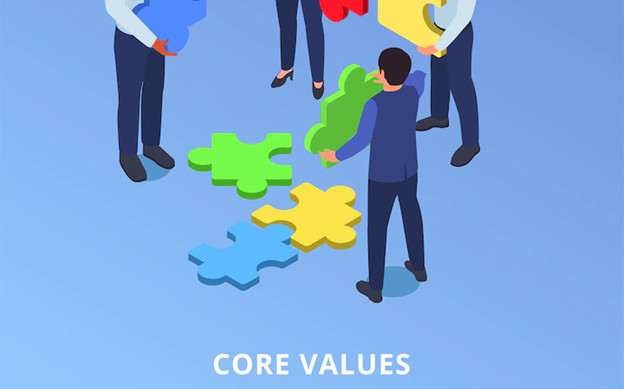The Ultimate Guide to Becoming a Professional Executive Coach In Singapore

So you’re thinking about becoming an executive coach? You’re not alone—coaching is one of the fastest-growing industries in the world.
Unlike other types of coaching, executive coaching is not limited to any one particular area; it can encompass anything from goal setting and time management to communication and leadership skills.
But before you take the plunge, there are a few things you should consider.
In this article, we’ll explore what executive coaching is, the benefits of getting accredited as an executive coach, and the things you should think about before deciding to enter this exciting and rewarding field.
What You Need to Know Before Pursuing Executive Coaching Certification Training
What is Executive Coaching ?
Executive coaching is a type of professional coaching that helps individuals in leadership positions achieve their goals and reach their full potential.
As an executive coach, you’ll work with clients one-on-one or in small groups to help them develop their skill sets.
You’ll also be responsible for goal setting, action planning, and accountability.
To be successful in this role, you must be able to build trust and rapport quickly, as well as provide honest feedback and constructive criticism.
The Benefits of Becoming an Executive Coach
There are many benefits to becoming an executive coach.
Perhaps the most obvious benefit is the financial compensation; according to Payscale.com, the average annual salary for an executive coach in Singapore is S$72,500.
But money isn’t everything!
For starters, it’s a highly rewarding profession—seeing your clients achieve their goals and reach their potential is incredibly fulfilling.
Executive coaching also offers the opportunity to help others achieve their professional dreams and goals.
If you’re the type of person who gets satisfaction from seeing others succeed, then becoming an executive coach might be the perfect career choice for you.
Additionally, executive coaching offers a great deal of flexibility and autonomy. As an executive coach, you can choose to work with clients in person or online, and you can set your hours.
This gives you the freedom to work from anywhere in the world. You also have the flexibility to set your hours and take on as many or as few clients as you’d like.
Finally, coaching is, to a high degree, a recession-proof industry—even in tough economic times, people still need help achieving their goals and reaching their full potential.
Things to Consider Before Becoming an Executive Coach

Now that we’ve explored what executive coaching is and the many benefits of becoming an executive coach, Sounds great so far, right? And it is!
But like with anything else, there are also some things to consider before deciding if becoming an executive coach is right for you. Here are some things to think about:
Do You Have What It Takes ?
The first thing you need to ask yourself is if you have what it takes to be an executive coach.
As with any profession, becoming an executive coach requires a significant investment of time and effort. You’ll need to complete a specialized training program, obtain certification, and build up your client base.
Additionally, being an effective executive coach requires continual learning and development; you’ll need to stay up-to-date on the latest trends and research in the field of coaching.
Most importantly, you must have a passion for helping others reach their potential. If you don’t have these things, then executive coaching might not be the right career path for you.
Are You Ready For The Responsibility ?
Another thing to consider before becoming an executive coach is whether or not you’re ready for the responsibility.
One thing to keep in mind is that being an executive coach requires significant time commitment; most coaches work with their clients on a weekly or bi-weekly basis, and each session typically lasts 1-2 hours.
So, although coaching is flexible, it can also be demanding since you’re working with clients one-on-one. This means that you may have to work evenings or weekends to accommodate your clients’ schedules.
Also, as a coach, you will be responsible for guiding your coach-ees through their professional journey. You have to be there for them during the highs and lows, being totally invested in their success.
If you’re not ready for this level of commitment, then coaching might not be right for you.
Can You Handle The Pressure ?
Being an executive coach can be stressful at times—you’re constantly working with different clients with different needs, goals, and personalities.
Not to mention, you’re also dealing with the pressure of knowing that your guidance could make or break your client’s career.
You should also be prepared for the fact that not every client will be successful. Just like in any other profession, there will always be some degree of failure.
It’s important to have realistic expectations and understand that not every client engagement will end in a success story. If you can’t handle this kind of pressure, then coaching might not be the right fit for you.
What Problems Do Executive Coaches Solve ?
Executive coaches can help individuals and businesses to solve a variety of problems. For example, they can identify areas where the executive needs to improve their leadership skills, develop strategies to enhance productivity and profitability, build strong teams, or resolve conflicts within the organization.
Additionally, they can provide valuable support during times of transition such as career changes or organizational restructuring.
How Long Does It Take To Become An Executive Coach ?
Becoming an executive coach typically requires a significant investment of time and effort. Depending on the type of certification you choose, this process could take anywhere from six months up to two years or more.
Other factors that can influence the length of time it takes to become an executive coach include your level of experience, the complexity of the certification process, and the amount of time you have available to dedicate to studying.
Is Coaching Certification Essential In Singapore ?
If you have aspirations to become a professional executive coach in Singapore, obtaining the correct certification is key. With this credential, you can establish yourself as an authoritative figure within your field and gain a competitive advantage.
Many of the top organizations are looking for certified coaches who have been professionally trained and can provide an evidence-based approach to improving team performance. This certification demonstrates that you understand the latest coaching techniques, know how to apply them effectively, and are up-to-date with industry trends.
How To Choose The Best Executive Coaching Training Program?
Choosing the right executive coach certification training program in Singapore can be a daunting task, as there are numerous options available. It is important to consider your individual needs and objectives before selecting a program.
Do you want an in-person or online course? Are accredited programs more important to you than non-accredited ones? Once you’ve narrowed down your search, look for features such as instructor quality, curriculum depth and breadth, and cost.
What Are The Most Common Types Of Executive Coaching Certifications ?
There are numerous types of professional coach certifications — some general and others specific to certain areas. The International Coach Federation (ICF) is the world leader in setting standards for the coaching profession and offers two types of coach certifications: Associate Certified Coach (ACC) and Professional Certified Coach (PCC). Both certifications are built on the same ethical foundation, but the PCC certification requires a higher level of coaching experience.
Other common types include life coach certification, executive performance coach certification, corporate coaching certification, and health and wellness coach certification. Each type focuses on its own specific area to ensure that you have the skills necessary to provide effective coaching for your clients.
Should You Get A Coaching Certification ?
The answer to this question depends largely on individual goals and objectives. It’s important to consider how having a certified coach credential can help you advance in your career or provide additional services within your current role. Having multiple certifications may also help you stand out in a competitive job market.
Ultimately, the decision of whether or not to obtain a coaching certification is up to you and your career aspirations.
Conclusion
So, should you become an executive coach?
If you’re looking for a rewarding career that offers flexibility and the opportunity to help others reach their potential, then the answer is yes!
However, it’s important to understand that coaching can be demanding, and not every client will be successful. But if you’re up for the challenge, then coaching may just be the perfect career for you!
The Ultimate Guide to Becoming a Professional Executive Coach In Singapore Read More »